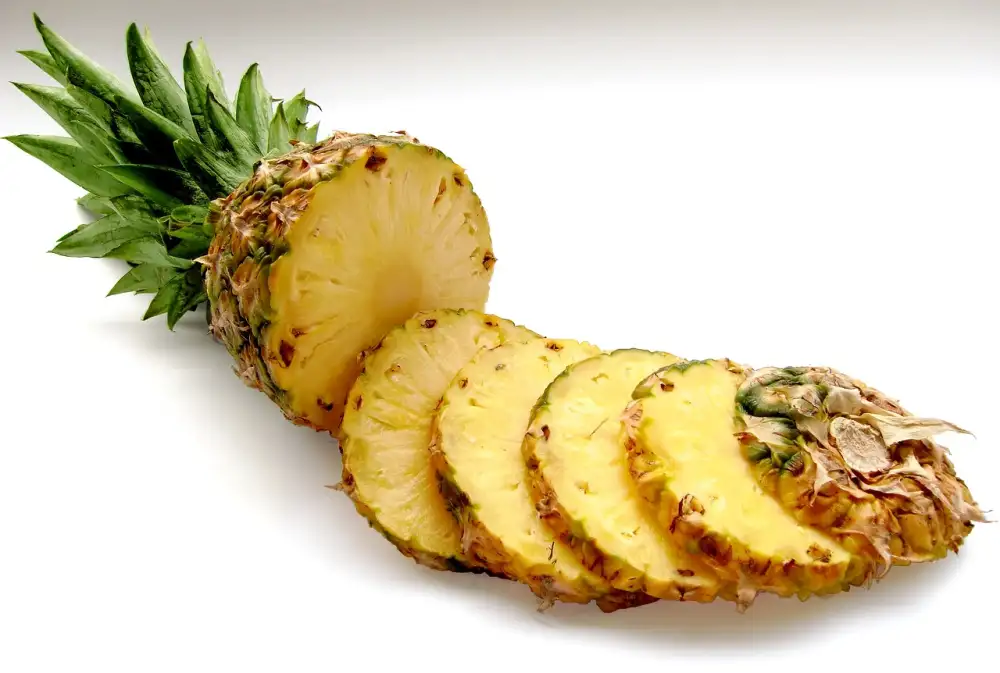Unveiling the Mystery: The Science behind Why Pineapple Can Cause Mouth Discomfort

Pineapple, with its sweet and tangy flavor, is a favorite fruit for many. However, for some individuals, eating pineapple can be a less than pleasant experience due to the discomfort it causes in the mouth. This mysterious phenomenon has left many wondering why this tropical fruit can leave their mouths feeling irritated and uncomfortable. In this article, we will delve into the science behind why pineapple can cause mouth discomfort and explore ways to minimize this sensation. So let's unravel the mystery and discover the secrets of pineapple's mouth discomfort.
Explanation of the enzyme bromelain in pineapple
Bromelain is an enzyme found in pineapple that plays a significant role in causing mouth discomfort. This powerful enzyme is known for its ability to break down proteins, which is why it is commonly used as a meat tenderizer. In pineapple, bromelain helps to break down the proteins in the fruit, making it easier to digest. However, when consumed, bromelain can also have an irritating effect on the delicate tissues of the mouth. It is important to note that not all pineapples contain the same amount of bromelain, as the levels can vary depending on factors such as ripeness and growing conditions. Nonetheless, even small amounts of bromelain can cause noticeable discomfort for some individuals.
How bromelain affects the mouth
Bromelain, an enzyme found in pineapple, plays a significant role in how it affects the mouth. When consumed, bromelain breaks down proteins, including those found in the tissues of our mouths. This enzymatic action can lead to a tingling or stinging sensation on the tongue and inside the cheeks. The intensity of this effect varies depending on factors such as the ripeness of the pineapple and individual sensitivity levels. Understanding how bromelain affects the mouth is crucial in managing pineapple-induced discomfort.
The sensation of mouth irritation caused by bromelain
The sensation of mouth irritation caused by bromelain can vary from person to person. Some individuals may experience a slight tingling or itching sensation on their tongue or the inside of their mouth after consuming pineapple. Others may feel a more intense burning sensation or even develop small sores on their lips or gums. This discomfort is temporary and usually subsides within a few hours. It is important to note that not everyone will have this reaction, as sensitivity to bromelain can vary greatly among individuals.
Factors that may increase sensitivity to pineapple
Factors that may increase sensitivity to pineapple can vary from person to person. One factor is the individual's level of bromelain intolerance. Some people have a higher sensitivity to this enzyme, making them more prone to experiencing mouth discomfort when consuming pineapple. Additionally, certain medical conditions such as oral allergies or oral allergy syndrome can also contribute to increased sensitivity. It is important for individuals with these conditions to exercise caution when consuming pineapple and consult with a healthcare professional if necessary.
Tips to minimize mouth discomfort when eating pineapple
To minimize mouth discomfort when eating pineapple, there are a few tips you can follow. First, try cutting the pineapple into smaller pieces or crushing it before consuming. This can help to break down the bromelain enzyme and reduce its concentration in each bite. Additionally, rinsing the pineapple with cold water or soaking it in saltwater for a few minutes can also help to decrease the bromelain content. Another option is to cook the pineapple, as heat can denature the enzyme and make it less irritating to the mouth. Lastly, pairing pineapple with dairy products like yogurt or milk can help neutralize the acidity and lessen any potential discomfort. By following these tips, you can still enjoy the delicious taste of pineapple without experiencing excessive mouth irritation.
While pineapple is a delicious tropical fruit that offers numerous health benefits, it can also cause mouth discomfort for some individuals. The culprit behind this sensation is the enzyme bromelain, which is found in pineapple. Bromelain has the ability to break down proteins, including those in our mouths, leading to irritation and discomfort.
However, understanding the science behind this phenomenon can help us manage and minimize the discomfort. By being aware of our own sensitivity to bromelain, we can make informed decisions about consuming pineapple. Additionally, factors such as ripeness and preparation methods can also impact the level of bromelain present in pineapple.
To minimize mouth discomfort when eating pineapple, consider rinsing it with cold water or soaking it in saltwater before consumption. This can help reduce the levels of bromelain on the surface of the fruit. Chewing slowly and thoroughly can also aid in breaking down bromelain before it reaches sensitive areas of the mouth.
In conclusion, while pineapple may cause mouth discomfort for some individuals due to its bromelain content, understanding how this enzyme affects our mouths allows us to manage and enjoy this tropical fruit without experiencing unnecessary discomfort. By following these tips, you can continue to indulge in the culinary delights that pineapple has to offer while minimizing any potential side effects.
Published: 09. 01. 2024
Category: Food



